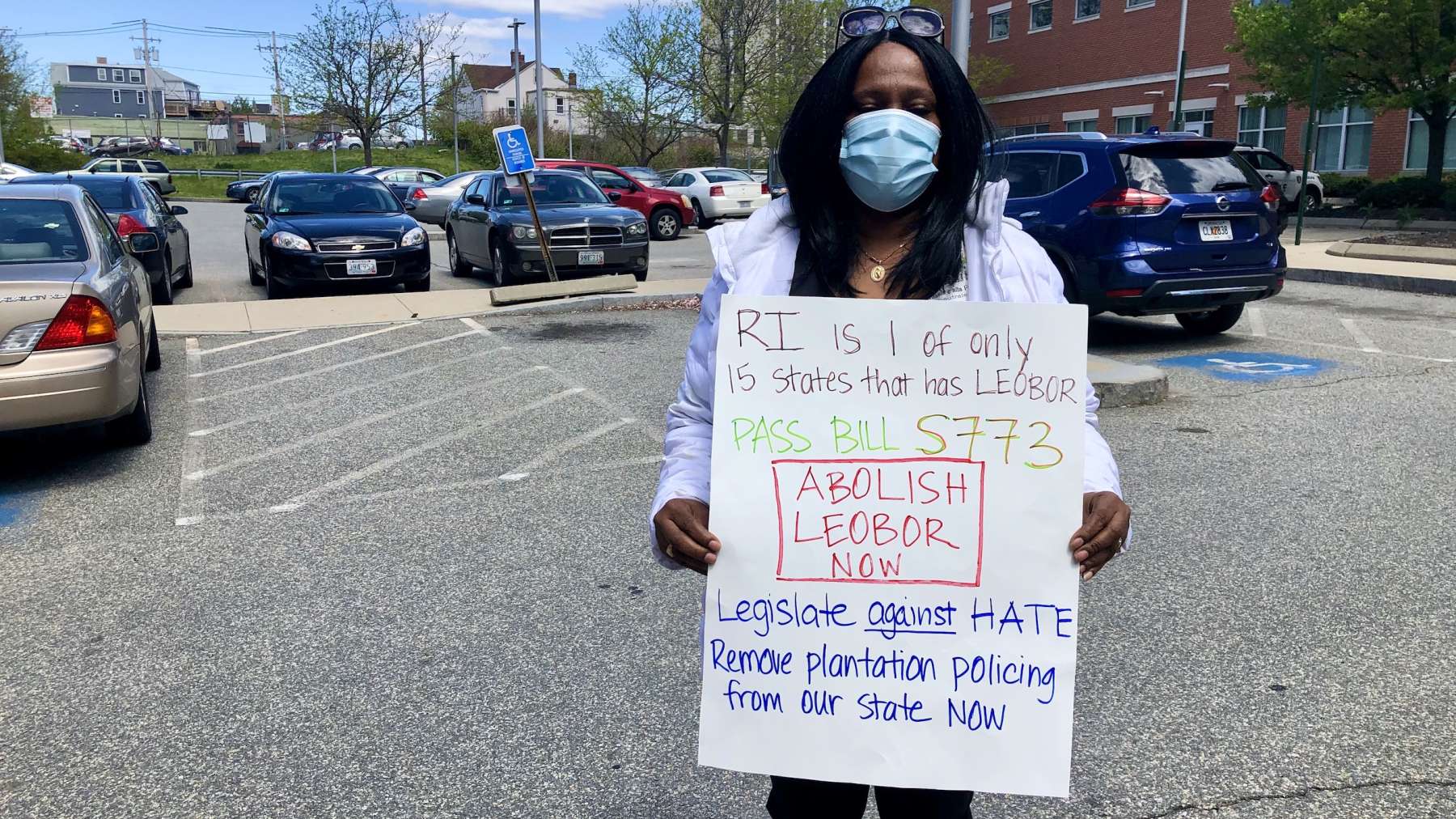Jackie Goldman: Repeal RI’s Law Enforcement Officer’s Bill of Rights
While Rhode Island is only one of 15 states with this kind of legislation it is the the only state in New England with this legislation. In fact, in April, 2021, the state of Maryland repealed LEOBOR. Ultimately, there was consensus that repealing LEOBOR would make communities safer because police would be held accountable for their conduct and have a greater standard for public transparency.
June 14, 2021, 2:41 pm
By Jackie Goldman
Though a growing number of Providence residents and Rhode Islanders in general have called for accountability and transparency in policing (in addition to calls made to re-allocate funding from police budgets to fund social services), there has been a lackluster response from state leaders such as Governor Daniel McKee, and House Speaker Joe Shekarchi. One of the biggest obstacles to getting justice in policing is the Law Enforcement Officers’ Bill of Rights (LEOBOR).
LEOBOR gives officers special rights that make it hard to discipline officers in cases of misconduct. Under LEOBOR, when a police office is under investigation that could lead to disciplinary action, they have a hearing with a judge and a three member panel made up of either law enforcement officials or people chosen by law enforcement officials. Once a punishment is set this panel has the power to change or reverse any rulings made during the hearing process. This means that officers under investigation are very likely to leave the hearing process without serious repercussions.
While Rhode Island is only one of 15 states with this kind of legislation it is the the only state in New England with this legislation. In fact, in April, 2021, the state of Maryland repealed LEOBOR. Ultimately, there was consensus that repealing LEOBOR would make communities safer because police would be held accountable for their conduct and have a greater standard for public transparency. There is also strong support for repealing LEOBOR in Rhode Island. There is broad recognition, from activists to the Providence Mayor Jorge Elorza, that rather than keeping us safer, people are more likely to encounter police violence because of the lack of accountability afforded by LEOBOR.
On April 1st, 2021, Senator Tiara Mack, along with Senators Samuel Bell and Jonathan Acosta, introduced Senate Bill 773, which would repeal LEOBOR entirely. However, other leaders within this state are trying to pass other legislation that would make small tweaks to LEOBOR but not substantively change the lack of discipline or accountability within policing in our state. So the real question: if we understand that LEOBOR is a massive barrier to responsibility and transparency in policing, why have we not repealed it in entirety especially when we know that police in this state have a track record for violence (for example, the Providence police have been found to be more violent than the average police department in the country)?
Unfortunately, there are many things driving the refusal to take real action. Part of it may come down to finances. Over his political career, Dominick Ruggiero has received close to $30,000 from police unions and corrections unions combined, and Joe Shekarchi has received close to $13,000 from police and corrections unions over his career. There is likely a tacit understanding that these legislators, along with the dozens of others who take police and corrections union money, will fight legislation that cracks down on police misconduct and only promote half-baked, weak legislation that can be billed with a reformist message, but does little to create accountability and transparency.
By failing to repeal LEOBOR, the General Assembly, and by extension, Governor McKee, are stating that they are fine with a police department that is far less transparent than our neighbor, like Massachusetts and Connecticut, and is known for some of the worst accountability in the country. They accept the fact that law officers cause harm in communities and disproportionately in low-income, Black and Brown communities and they do so without significant consequences. If the decision-makers in this state want to support their communities’ demands for justice in policing, and want to make good on their statements that they want to see accountability within police ranks, they will repeal LEOBOR in its entirety.






